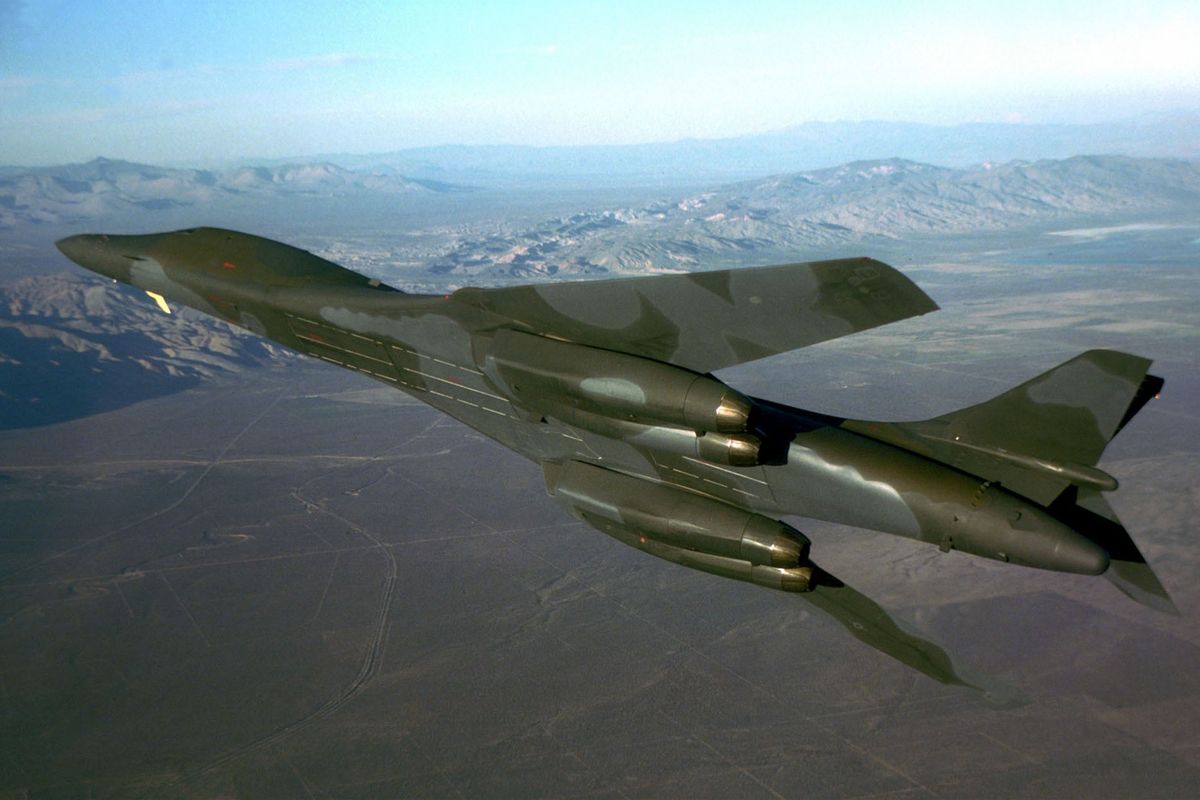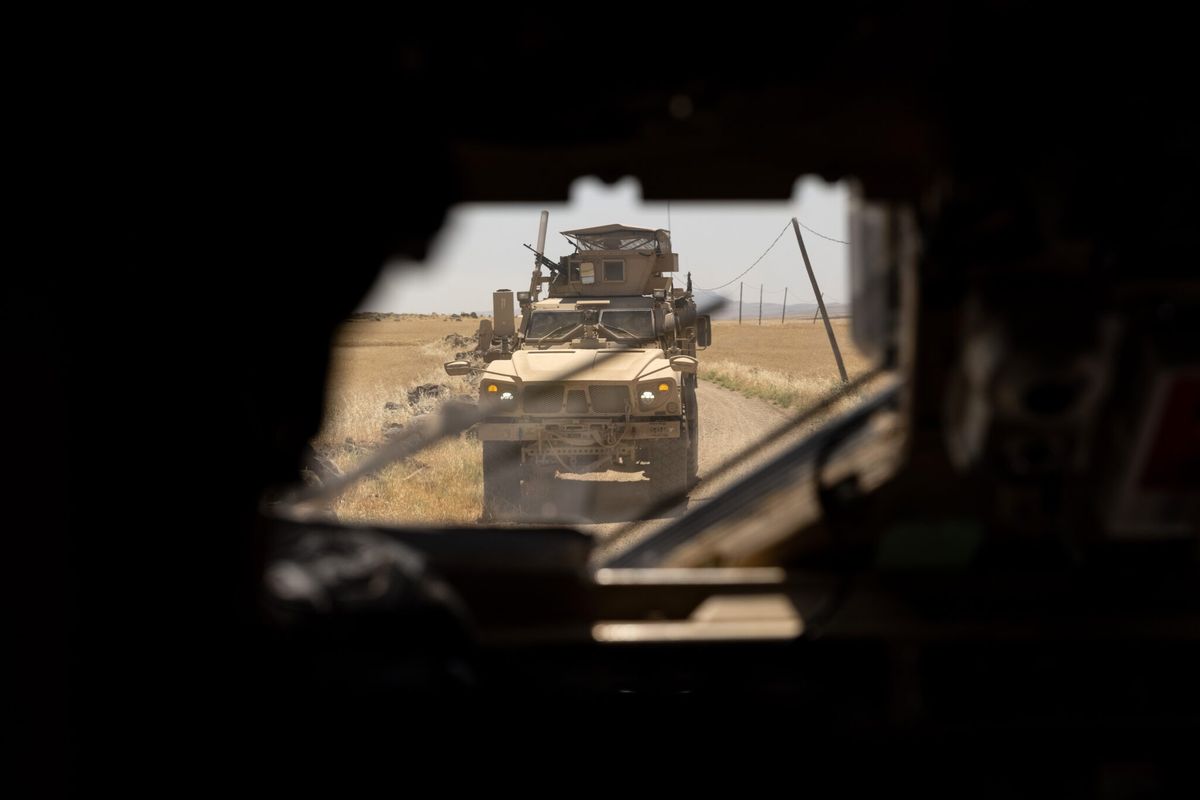The United States launched a missile strike on a Syrian air base early Friday morning, local time, in response to this week’s deadly chemical weapons attack in Idlib province. The strike marked U.S. forces’ first direct assault on Syrian President Bashar al-Assad’s regime since the country’s devastating civil war began six years ago.
The 59 Tomahawk missiles fired targeted the Shayrat air base, where it is believed the planes that conducted the chemical attack killing more than 80 people, including civilians, originated. “It is in the vital national security interest of the United States to prevent and deter the spread and use of deadly chemical weapons,” U.S. President Donald Trump said.
The President also called on “all civilized nations to join us in seeking to end the slaughter and bloodshed in Syria and also to end terrorism of all kinds and all types.”
On Friday, U.S. Ambassador to the United Nations Nikki Haley said the U.S. “took a very measured step” with its strike. “We are prepared to do more, but we hope that will not be necessary,” she said.
The strikes marked a sharp turnaround for the Trump administration. Just last week, several top officials had signaled the U.S. was no longer focused on trying to push Assad out. Then, less than 72 hours after reports of chemical weapons attack, the President decided to strike Syria in retaliation for the deadly incident.
According to Robert Richer, the CIA’s former Associate Deputy Director for Operations and a Cipher Brief network expert, the strike on the air base was largely “symbolic, but it does show that this President and his Administration are taking the use of those chemical weapons seriously.”
Washington’s action was condemned by Assad and his backers, Russia and Iran, but widely supported by the Syrian opposition and U.S. allies.
Richer noted that “from what I’m hearing from the people I deal with in the Middle East, they are saying that this is an indication that circumstances have changed and maybe the U.S. will take some strong steps in terms of Iran, their most critical issue in the region, and also push the Syrian war to a resolution a little more quickly.”
The Kremlin called the strike an “act of aggression” that “deals a significant blow to the Russia-U.S. relations, which are already in a deplorable shape.” The U.S. notified Russia in advance of the strike on the de-confliction mechanism, the channel used to prevent incidents in the crowded Syrian airspace, and also took precautions not to hit the Russian military area on the base, according to the Pentagon.
Senior military officials said Friday the Pentagon is investigating whether Russia may have played a part in this week’s chemical weapons attack.
During a speech at the U.N., Haley criticized Russia, given that it is “supposed to be a guarantor of the removal of chemical weapons in Syria.”
“It could be that Russia is knowingly allowing chemical weapons to remain in Syria. It could be that Russia has been incompetent in its efforts to remove the chemical weapons. Or, it could be that the Assad regime is playing the Russians for fools,” she said in a speech Friday.
White House Press Secretary Sean Spicer on Friday would not discuss any potential next steps the administration might take. He told reporters the strike was “very decisive, justified and proportional.”
"The President believes the Syrian government, the Assad regime, should at the minimum agree to abide by the agreements they've made not to use chemical weapons. I think that should be a minimum standard set around the world," Spicer said.
On Thursday, Secretary of State Rex Tillerson called the strike “proportional because it was targeted at the facility that delivered this most recent chemical weapons attack.” The National Security Advisor, Lieutenant General H.R. McMaster, said it should communicate “a big shift in Assad’s calculus” given that this is the first time the U.S. has taken direct military action.
Admiral James Stavridis, a Cipher Brief network expert and former Supreme Allied Commander of NATO, called the strike “proportional, legal and professional.” It “won't change the facts on the ground or have significant, tactical impact,” he said, but it will send a “big, strategic message.”
Ambassador James Jeffrey, former U.S. Ambassador to Iraq and Turkey and a Cipher Brief network expert, agreed, saying that “there is limited military significance — although the same can be said of Syrians' chemical weapons attacks — but extraordinary diplomatic significance.”
The question is “whether this response is, or will be, part of a broader strategy in Syria,” Cipher Brief network expert Lieutenant General (ret.) Guy Swan noted.
The strike will put Assad “back on his heels a bit,” he said, “but without a sustained strategy, this could only result in short term effects.”
Mackenzie Weinger is a national security reporter at The Cipher Brief. Follow her on Twitter @mweinger.













